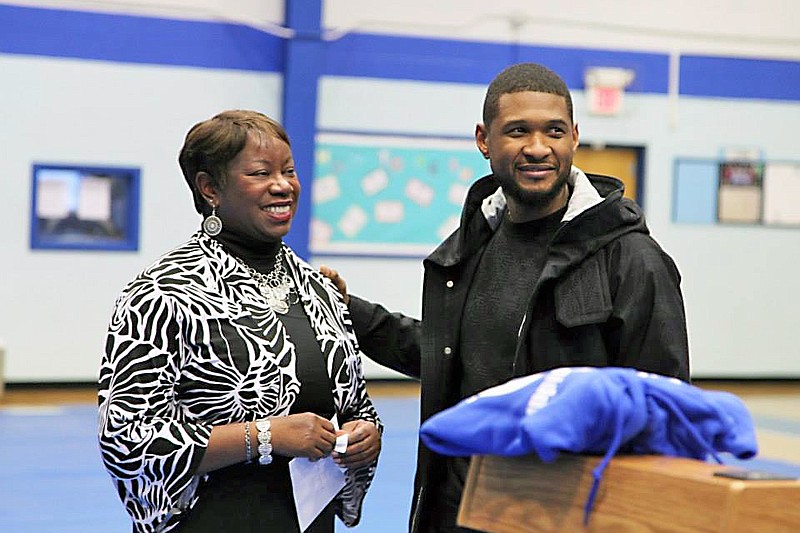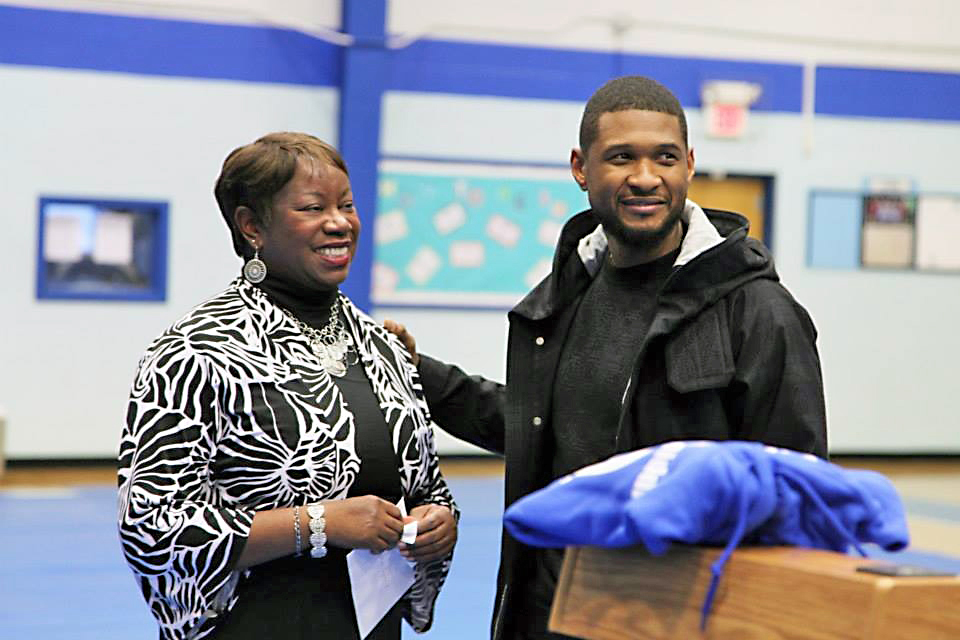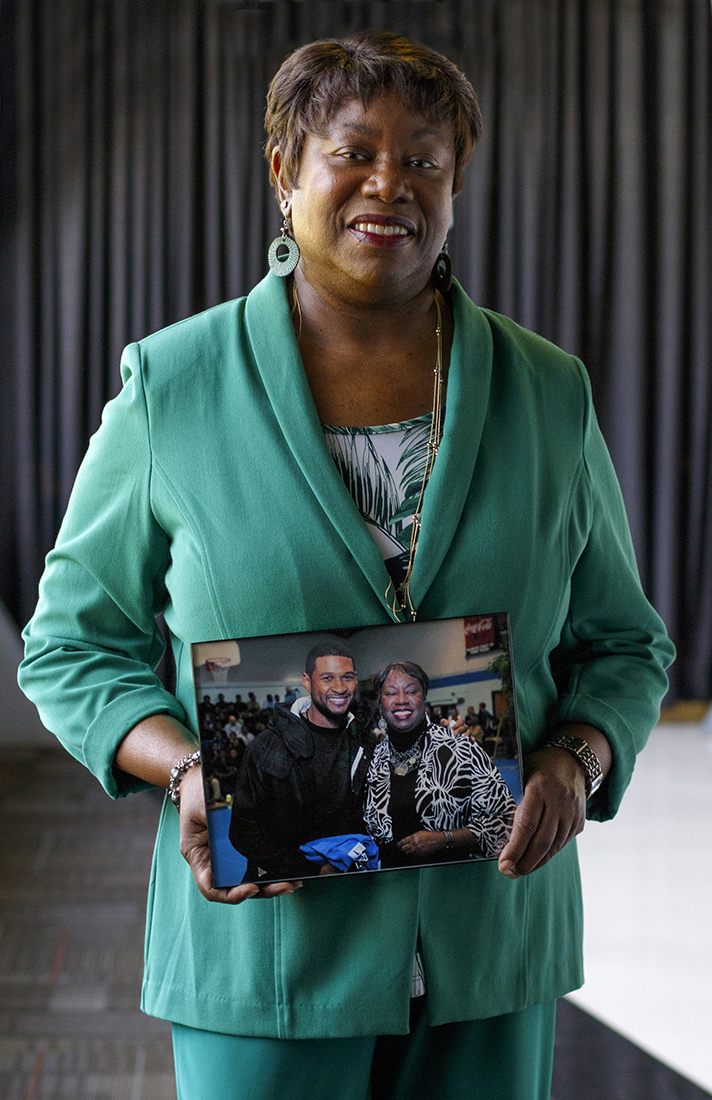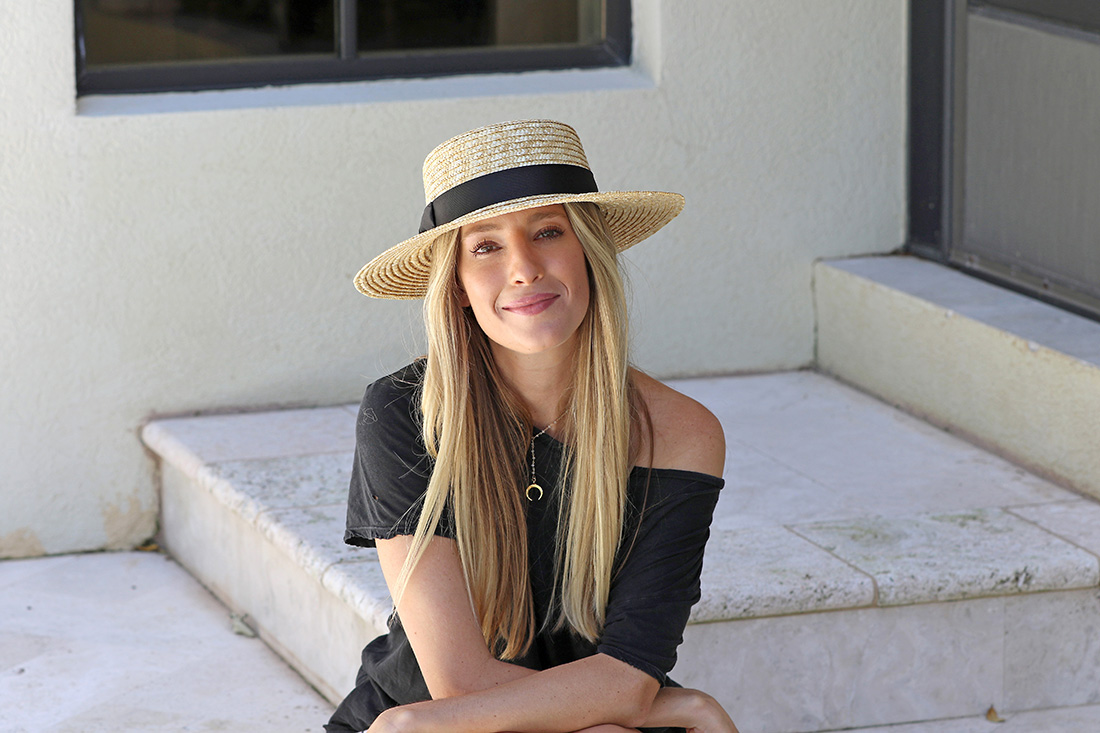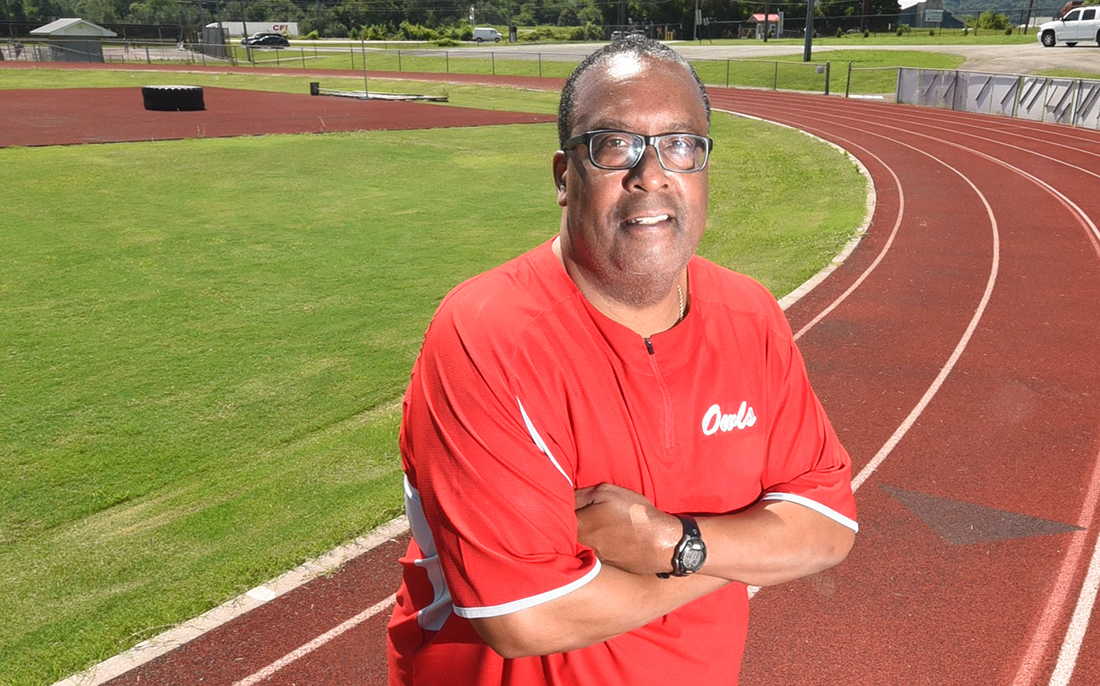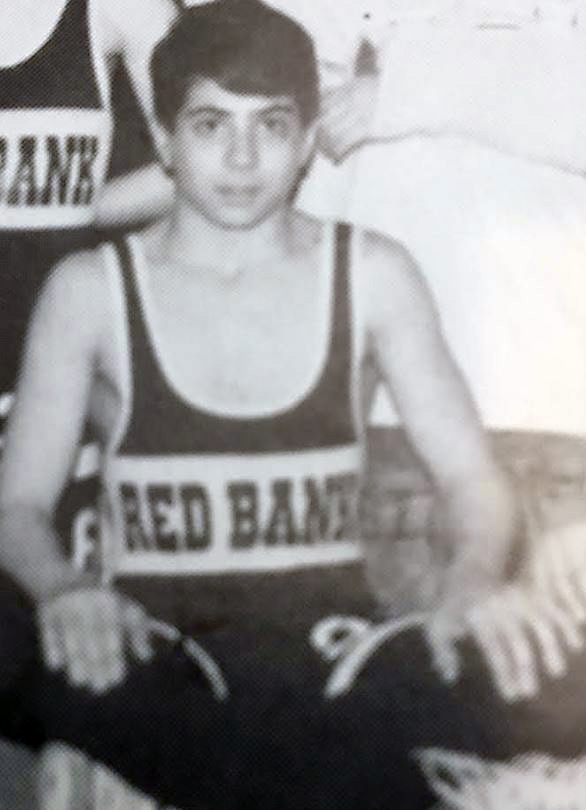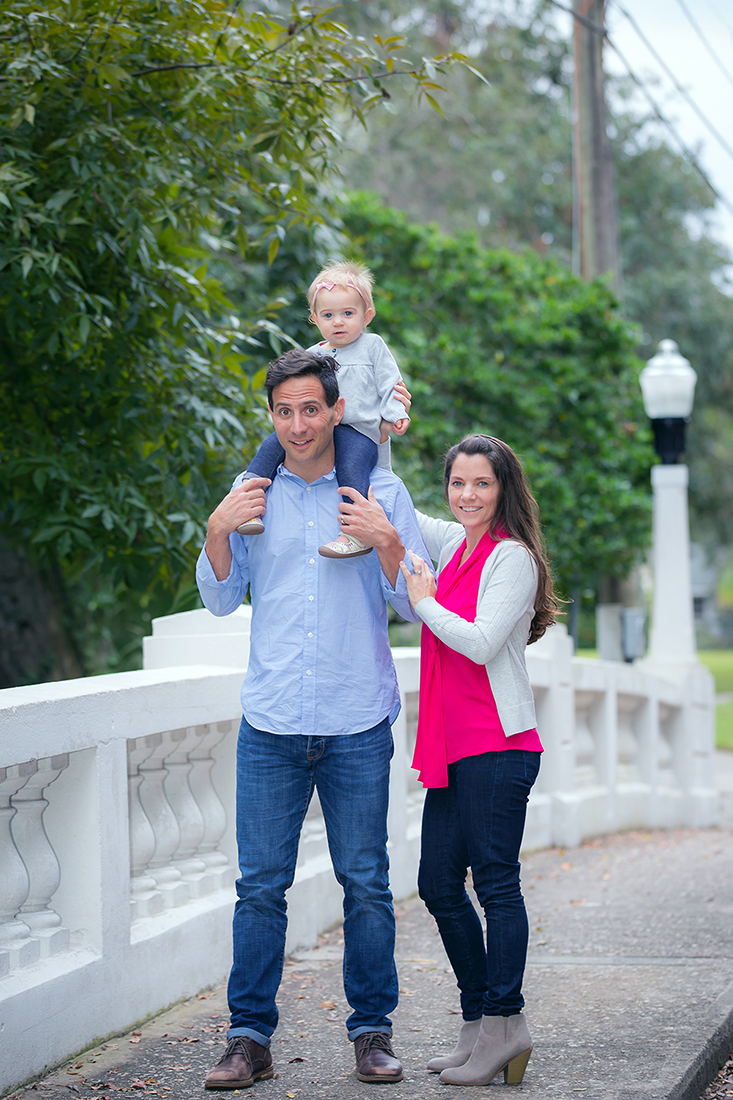Be careful. Even if you don't have children, treat them like you would your own, because just as powerful as the positive words are, the negative things that we do or say can really scar a child for life.
Almost everyone can name at least one teacher who had a significant impact on the trajectory of their career, and Chattanooga is no exception. Yet every morning, Hamilton County's teachers march into their classrooms with no idea if this will be the day their words of encouragement or creative lesson plans inspire a student to pursue a long-held dream or acquire a brand-new passion.
We asked a few local teachers to share some of the life-changing stories they've heard about their own classes from past students. Hopefully, their stories will inspire you to say 'thanks' to that instructor who made a difference in your life.
Finding the Focus
As a teacher for nearly 40 years, Roxanna Edwards sees her former students almost everywhere she goes.
She runs into them when she pops into the grocery store. Bumps into them at amusement parks like Disney World.
"I even saw one on a cruise ship in the Caribbean," the chorus teacher laughs.
But there's one student she can see by turning on a television or the radio: international recording artist Usher Raymond.
After teaching the R&B and pop singer back when he was enrolled at Dalewood Middle School, Edwards had pretty much lost touch with him.
She'd heard from other students that he had released records and been on "American Idol" as a celebrity mentor, but she didn't truly understand just how famous her former pupil had become until a few years ago, when a burly gentleman knocked on her classroom door during her free class period and asked if she had a moment to see someone.
When she said yes, the man stepped aside to reveal Usher smiling behind him.
"He had snuck into the building," Edwards laughs. "That was my first impression that he had made it big: because he needed a bodyguard and eventually, when the students found out he was there, we had a really rough time getting him out of the building."
The icon had dropped by the school to offer Edwards and her family backstage passes for the concert he had come to perform at Chattanooga's Memorial Auditorium, and as the two caught up, Edwards says, the singer looked at her and said, "I told you I was gonna make it."
She'd never doubted it.
Even way back in seventh grade, Edwards says, Usher was always very focused on his music.
"He liked to play and he was into the girls," she admits with a laugh, "but when it came time to focus on our program, to sing in class, he was there up front."
He had a passion for music that was contagious, the teacher remembers, and whether he was in choir or in private vocal lessons with Edwards, the 12-year-old was always sharing a new piece of music he was tinkering with, or demonstrating the new dance steps he and his friends were working on.
"He was already there," Edwards says. "He knew what he wanted to do and he was already focused. It was never a point of me having to direct him."
That's why Edwards was so surprised when Usher gave her a shoutout during a concert he performed at Dalewood Middle in 2016 as part of a documentary series called "Neighborhood Sessions" that aired on TNT.
In the documentary, Usher admitted that during his time at Dalewood, he was not as focused as Edwards remembers - at least not at first. Back then, he said, he found it difficult to concentrate on his schoolwork.
"I was one of those students who didn't get great grades, and at times, I would check out, or I would act out," he said in the fourth episode of the State Farm-sponsored series.
But music provided an anchor for him, equipping him with a dream to work toward and giving him a reason to focus on his other studies. And Edwards, he said, was a huge part of that.
"If I didn't have her to support me and push me and help me understand how music can be used to understand life, I wouldn't have kept doing what I'm doing," Usher said.
For Edwards, those words came as a shock.
"I had never considered myself a mentor; I just consider myself doing my job and teaching him like all the others," she says. "It goes to show you never know what impact you have on a student until they let you know."
Today, as a chorus teacher at Tyner Academy, Edwards continues to give her time and support to students who have expressed a desire in becoming a professional singer. She offers them private tutoring, vocal coaching and as many opportunities as she can to sing solos and work on their vocal techniques, never knowing if her words might be encouraging to the next Usher, or the next Rihanna, or the next Adele.
"Sometimes," Edwards says, "all they need is just someone to believe in them, and I can do that. That's definitely something I can do."
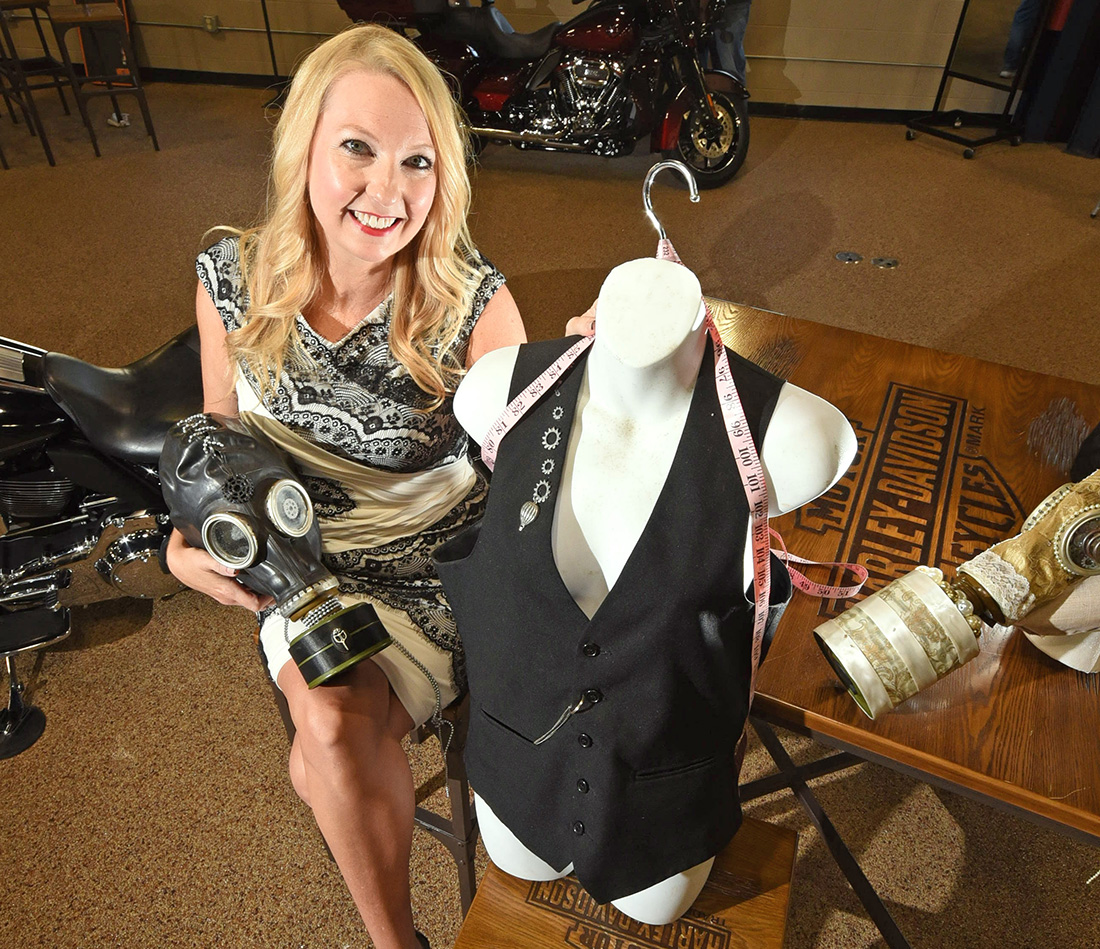 Ooltewah High School teacher Heather McIntyre blends the unusual with the usual when it comes to fashion, as seen in this photo of her at White Lightning Harley Davidson, where she brings students on field trips to teach fashion marketing. The fashion marketing class is the only one of its kind in Hamilton County.
Ooltewah High School teacher Heather McIntyre blends the unusual with the usual when it comes to fashion, as seen in this photo of her at White Lightning Harley Davidson, where she brings students on field trips to teach fashion marketing. The fashion marketing class is the only one of its kind in Hamilton County.Runway to Success
Bri O'Shea can still remember how confused she felt the day that one of her teachers brought a stash of trash bags to class and told the students to make a garment out of them. "I just remember being in that class like 'What? How are you supposed to make a garment out of a trash bag?'"
She had no way of knowing way back then that the unorthodox assignment would help inspire her to develop her own clothing line almost 10 years down the road.
That class assignment was the brainchild of Heather McIntyre, Ooltewah High School teacher and self-described "weirdo" and "free spirit." McIntyre says she came up with the idea during her lunch break while trying to figure out a way to help the students in her Fashion Marketing class understand patterns in design.
"Although I love books, I think sometimes you can learn so much more by doing and if you just go and lay out the pattern, that's kind of boring," she says. So she decided to take a more unconventional approach. "I was trying to get them to think differently."
Limited to two trash bags and one class period for their "mini Project Runway," the students quickly split into groups and started sketching out designs.
Convinced that she could do more than just "cut a hole and put her head through it," O'Shea proposed that her group turn its Hefty bag into a one-shoulder asymmetrical cocktail dress.
"They all thought I was crazy," she chuckles. But she convinced them, all the same.
Working swiftly, the girls wrapped the black plastic around the student who served as their model, stapling everything on the inside so the seams would not be visible to spectators. Then they tucked the sides of the skirt up to give it a layered texture and fashioned leftover pieces of the bag into a rose for the shoulder.
The results were stunning - enough for the girls to claim victory in the impromptu competition - but O'Shea took more from the exercise than just a lesson about patterns. By working with a restricted amount of recycled material, she had also learned that through creativity, she could use design to cut down on waste and protect the environment.
"That was one of the first moments where I was like, 'Oh, wow. This is cool. You can make things out of stuff we already have,'" O'Shea says.
The lesson stuck with her all throughout college and resurfaced when she got her first job in corporate fashion and saw firsthand how much wastefulness there was throughout the mass production process.
Determined to combat that waste while producing high-quality attire, O'Shea founded Label B this January, which is dedicated to creating swimwear made from recycled material. The Florida-based company uses dead-stock fabric, leftover material from other companies and retailers that might otherwise end up in a landfill.
"It's almost like limited edition in a way," she says. "Once the material's gone, it's gone."
The business model pushes O'Shea to be more creative and think differently, much like she did while creating the cocktail dress all those years ago, and she starts by considering functionality while conceptualizing a new design. Each swimsuit, for example, is reversible, with an interesting texture, color block or print on one side, and a single, solid color on the other. The design ultimately ensures that buyers get the most out of each garment, she explains.
"Sustainability is very important and the environment is not going to produce forever, and so it's up for us to do our part and not be wasteful," O'Shea says. "Thinking back to that class, it's just so funny because Ms. McIntyre really was just so ahead of her time in that thought process."
The Motivation to Push Through
When Eric Hahn started eighth grade at Red Bank Middle School nearly 30 years ago, he says he was "a little punk with a smart mouth, bad attitude and way more heart than common sense."
Easily bored by the lack of challenge in his classes, Hahn directed his energy toward causing mischief and goofing off, landing him in hot water with most of his teachers. But where others saw a problem child, his life science teacher and track coach Gerald Williams saw a smart but misunderstood teenager who was just in need of a little support.
"He was the kind of kid that you could look at and say, 'If he doesn't have a male figure or a solid home life, he could steer the other way,'" Williams remembers.
And the consequences of that shift can be dire.
"I've gone to way too many funerals of former students," Williams says with heaviness in his voice, remembering graduates the community lost to suicides and gun violence. "The kids that I hear about that are locked up, the kids that are dead, made that turn and didn't come back."
Determined to help Hahn keep on the straight and narrow, Williams convinced him to join the school's track team, where he excelled not because of his speed, but because his time on the wrestling and football teams had taught him how to push past the pain.
His endurance earned him the nickname "Eric the Hahn," derived by Williams from Attila the Hun, feared ruler of the Hunnic Empire in the fifth century. Even when Hahn entered tunnel vision during a race, blocking out pain and sound alike, he says he could always hear Williams on the sidelines screaming "Come on, Eric! Come on, Eric the Hahn! You know you can break one minute!""He was able to motivate me, he was able to get through to me like no one else could," says Hahn, who was having trouble connecting with his parents at the time due to the 50-year gap between his age and theirs. "[Coach Williams had the] ability to push you deep within yourself to make you realize the potential that you had."
The same rang just as true in the classroom as it did on the field. Williams not only inspired the student to dig deep to reach his academic potential, he also assured the eighth-grader that his version of success didn't have to look like everyone else's - a much-needed comfort for an athlete whose strange sense of style and inability to fit in with either the jocks or the smart kids left him feeling like an outsider at the time.
"Coach Williams was the kind of person that you would want to do the best for," Hahn says. "He made it OK for me to play the game yet still have my individuality."
But life after middle school wasn't easy for Hahn. After a sports injury put the teen out of commission during his first few years of high school, Hahn became addicted to the prescribed narcotic pain killers and was expelled from Red Bank High by the age of 16 for selling the drugs at summer school. By the age of 21, Hahn had been to prison twice. At age 26, when he finally shook his addiction and began to pick up the pieces of his life, Coach Williams' words weren't far from his mind.
While tackling large tasks in pursuit of his degree at Valencia College in Orlando years later, Hahn would slip into tunnel vision and again hear Williams chanting, "Come on, Eric! Come on, Eric the Hahn!"
"It's really emotional. It brings tears to my eyes when I think about it," says Hahn, who has won the San Luis Rey Road Race and the San Marcos Criterium during his cycling career and placed in several more.
Today, after earning an associate degree in electrical engineering technology, Hahn works as an engineer for a company involved with manufacturing self-driving cars. Since entering the field, he has also worked in a laser lab in San Diego, building and tuning lasers used by Nobel Prize-winning scientists for cancer research.
"The return on investment that society got from me because of Coach Williams - you can't put a price on that," Hahn says. "I feel like I'm leaving the world a better place."
